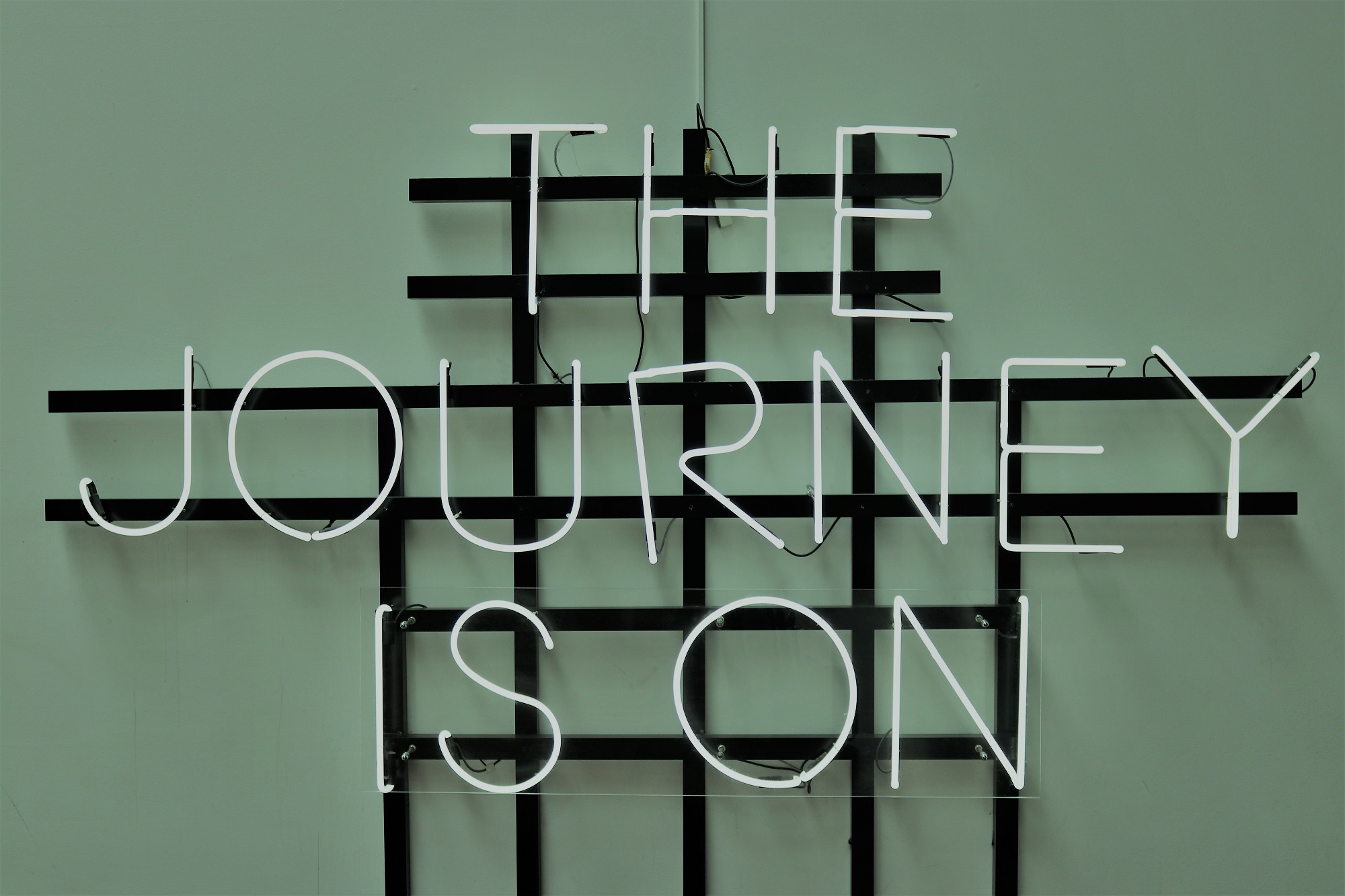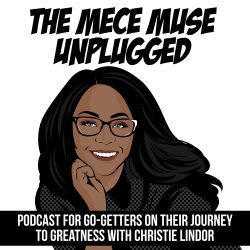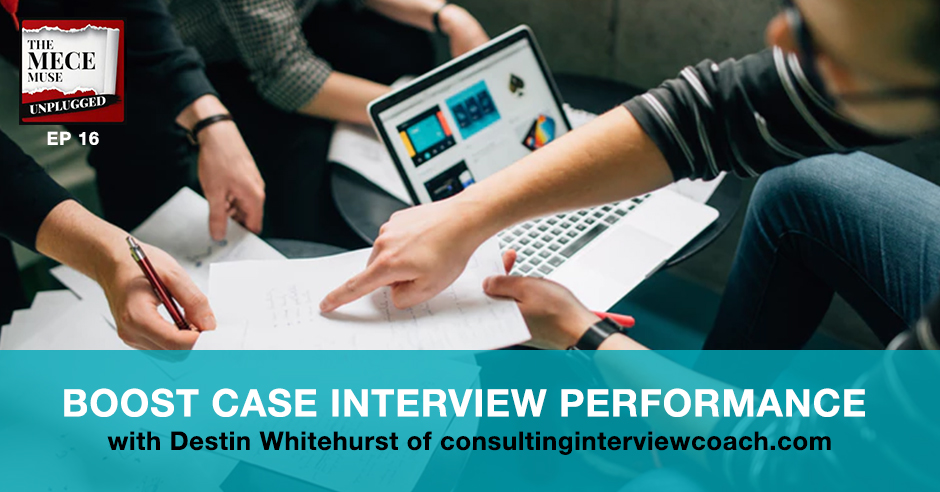Quick Wins interview with Destin Whitehurst, co-founder of consultinginterviewcoach.com kicks off the Welcome Back to Campus series. Destin shares his own career journey as a former consultant while providing insights and ideas on how consulting candidates can take their interview performance to the next level, and how to best leverage mock case interviews.
Listen to the Episode Here:
Podcast: Play in new window | Download | Embed
Subscribe: Apple Podcasts | Email | TuneIn | RSS | More
On this episode, we will be doing a segment that I call Quick Wins. If this is your first time tuning in, Quick Wins is where I have an opportunity to connect with an individual to discuss either products, services, or ideas that are helpful for a consulting tool kit. This is episode sixteen, it actually kicks off our very first Welcome Back to Campus episode. I’m super excited to have this conversation with my undergraduate and graduate go-getters out there. We’re going to share the interview that I did with Destin Whitehurst. Destin is a Co-Founder of ConsultingInterviewCoach.com. He’s also a former consultant and an author. He did his undergrad at Notre Dame and his grad MBA at the McCombs Business School at University of Texas, Austin.
In this episode, we really get a chance to talk through some ideas. For those that are interested in a consulting career, getting prepared for the case interview seems to be an area of challenge. Destin spends his days pretty much speaking to hundreds and hundreds of candidates such as yourself. He shares a little bit more insight that you’ll find extremely helpful. At the end of our interview, I’ll provide a MECE mentoring moment. I want to round out some additional thoughts on case interview prep and some other things you should consider.
Interview with Destin Whitehurst
Destin, thank you for taking time to join us on The MECE Muse Unplugged. How are you doing?
I’m doing very well. Thank you for having me.
Could you take a moment to introduce yourself to the go-getters of the MECE Muse Unplugged?
I’m Destin Whitehurst, the Founder of ConsultingInterviewCoach.com. Previously, I was with a Big Four consulting firm and focused on life sciences strategy. When I went to get my MBA, I started this company, which we’ve now had going on three years.
I’ve heard so many great things about your company and know several people that use your services. I’m excited that we’re going to get a chance to talk to you. Destin, maybe you can share with the go-getters a little bit about your journey in consulting. How were you exposed to the profession and what were some of the factors that influenced your thinking in going into consulting?
I had an unusual early exposure to consulting. I had an aunt and an uncle that worked at two of the MBB firms. From an early age, I had an interest in the type of work they’re doing, seeing them travel and hearing stories about their client interaction. Then I did my undergrad at Notre Dame where there’s a pretty large group of students focused on consulting. That solidified my interest in the industry, especially taking a few strategy-oriented classes. When I received the offer from the firm that I was with, I was excited to join. Life sciences was the predominant area. I quickly transitioned from life sciences to mergers and acquisitions, which was to me just fascinating that you can go so deep into one area or so broad. A lot of the candidates that come to us, one of their reasons for getting into consulting is all the industry and business challenges you can face. You can also deep dive as well, which I did during my career.
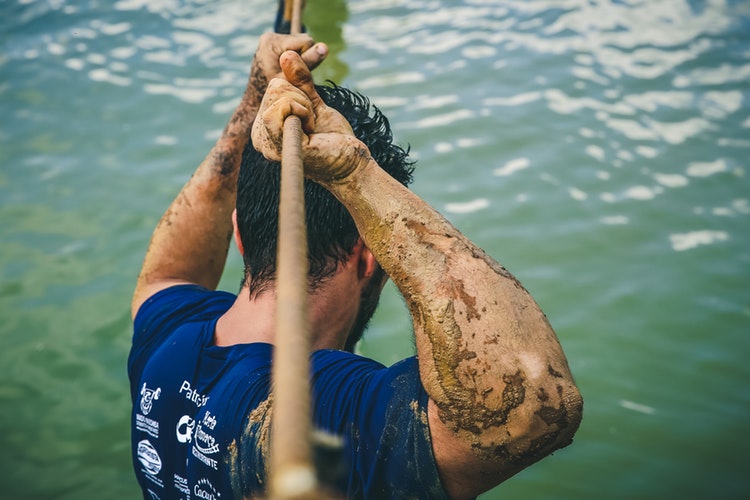
You actually mentioned the life sciences or M&A. Did you know that those are the areas that you wanted to focus on? It sounded like you started in life sciences and then pivoted into some of the M&A work. Did you make a conscious decision to go into that space?
No, I didn’t. I followed who I found to be the most impressive people that I enjoyed working with. That just happened to be the group that I was exposed to, and surrounded myself with a lot of leaders and a lot of sharp individuals. I stayed in that track and learned and grew with them.
Go-getters, what he’s highlighting is what I call looking at the broader picture of consulting and looking at the culture. It sounded like you were in a good environment. You were attracted to the culture of a particular practice or area, then that led you down this path. For younger or newer consultants, it’s so important. Culture to me is everything when it comes to firm decisions or practice areas to take heed of that. Thank you for sharing that, for bringing that out. During your in consulting, what was something that surprised you?
It’s definitely the idea of driving your own career, having control of what types of engagements you’re working on, what types of clients, what type of business problems. I had assumed going in that you’re the low man on the totem pole and get dictated to in terms of the career you’re going to be flying. If you grab your career by the horns and make your preferences known and do good work, you can explore whichever initiatives that you’re most interested in. I’ve even seen people essentially develop their own practices at a fairly low career rank simply because they had an interest. They were able to work towards it and they weren’t afraid to do so.
What would you say is your definition of a great consultant?
There are two things that stand out to me. One is listening. It’s not that we’re just handing down strategic advice from on high, but actually being there shoulder-to-shoulder with the client, understanding their problems, getting to know the team, getting to know the company. That’s absolutely crucial towards success, being able to implement whatever it is that you’re recommending. Number two is curiosity. It’s pretty easy to come in and perform your analysis, even meet the people and then leave it at that. What I found in my later years in consulting was that I did so much better work when I was going to actually see the facilities and meet the salespeople and see the product and actually hold it in my hands. It made all the difference in the world. That’s what I would recommend to any folks that are just now getting into the industry.
I’m going to pivot and talk a little bit more about your company, ConsultingInterviewCoach.com. You started your career in consulting. You mentioned going to school and then starting your company. Maybe you can share a little bit about the journey of how you decided to start this service. Was it something you were thinking about while in school or was it just happenstance?
Going into my MBA, I went to University of Texas McCombs School of Business. I wanted to have something where I could apply the lessons I was learning in the classroom in a real world situation. On top of just being able to pay the bills while I was in school, I started this company. After working with clients and seeing the impact that we were having, getting thank you letters about helping people get into and now they’re starting their careers in consulting, that encouraged me to take it seriously and grow. Towards the end of my MBA, I started bringing on more team members. We expanded from initially two to three. Now we’ve got ten coaches and they are from basically the top four or five firms, and we’ve got folks on both coasts of the US. I’ve increased and grew the scale of the company and our capabilities as well.
I know of individuals that have used your services. You are definitely the real deal. For go-getters that may be interested in your service, maybe you can take a moment and just share a little bit more insights in terms of the high-level overview of how you service various candidates. Maybe walk us through the overview of your process.
It’s all virtual training. We use Skype. You essentially can go onto our website, see our different services, schedule a session, pay, and then at your appointment time meet with a coach, hopefully doing it via video conference in order to make it a little bit more personal. What we offer is case prep, behavioral or fit prep, resume, and cover letter review. In general, we do a decent bit of networking tips and tricks in the conversations before and after the formal sessions. The reason that we exist and that we’ve been able to grow is the value that we’re offering here. All of our coaches have experience with these top firms several years at a minimum. The majority are at top MBAs. We’ve got folks from Kellogg, Harvard, MIT, Wharton or Berkeley. Not only that, they’ve been vetted.
There are some other platforms where the coaches can just sign up to be on the platform. We go and train ours, take them through the process to make sure that they’re dedicated and interested in helping candidates. On top of that, we offer a structured targeted training, whether that’s running through four cases over the course of a couple of weeks and you’re receiving scorecards across a variety of metrics, a heat map that shows your case by case performance or if it’s drilling into, “Let’s just do three or four frameworks in the course of an hour and really focus on making unique targeted frameworks.” We learn your new development areas and we hit those hard. Finally, having given cases to hundreds of clients ranging from undergrads to MBAs to professionals, we know the common pitfalls with the cases we’re delivering. We know what excellence looks like and that’s what we train you to.
You mentioned the case files, the resume, behavioral interview, and then the framework. I know they’re not the MECE way to look at it, but those four elements, what would you say is the most common pitfalls you see with candidates within those four buckets?
As far as the resume is concerned, do the resume, it’s a way to demonstrate your impact, your success. A lot of people don’t quantify or even highlight what they’ve actually accomplished. What was the result of your actions? The cover letter you should view as a love letter. This should be about the firm and how you’re going to add value at that firm. You really need to sort of focus on that relationship, the people you’ve met, the interactions you’ve had, the events you’ve attended it’s vital. As far as cases are concerned, I’ll highlight maybe two things. One, is I see a lot of off the shelf cookie-cutter or frameworks that are functional, but they’re not targeted to the prompt or the industry and they’re not particularly interesting or creative and that’s a missed opportunity to show off style and your personal case to pick capabilities and manner of thinking.
The other thing on the case is getting back to impact. It’s thinking about insights rather than descriptions. What’s the “so what” of the case or if you’re looking at a graph or some data, don’t describe it to me, but tell me what’s important about it. How does it impact the client in the context of these problems? It takes a second level layer of thinking that basically comes with practice. Finally, thinking about fit, know your brand. Be able to express your brand, the value that you would bring to a firm and explain why you’re interested in not only consulting but that firm specifically. I know particularly our campus recruits, they’re looking at maybe five, six firms and it’s hard to tailor. It’s vital that you’re able to the drill down and be genuine about your interests.
I so love the make the cover letter like a love letter. I’ve never heard that before, but I so love that. I’m going to borrow that if you don’t mind. I totally agree in terms of knowing your brand, taking the case prep and adding your spin and your personality to it for sure. For go-getters that’s maybe new to consulting and don’t know what’s the “so what,” I covered the “so what” in my upcoming book but can you maybe just give everyone a little bit more context of what the “so what” is? It’s so important.
For example, you have a graph that you run some calculations and it turns out that there’s an obvious financial answer to your question, but you’ve also learned in the case that maybe there is some considerations on the quality of a given product that will force you to follow a timeline that doesn’t match the most financially advantageous. The “so what” here is not to just pick one or the other or to say, “This is where the numbers are leading me, therefore that’s the answer.” Let’s take a step back and say, “What industry am I in?” If we’re in a healthcare industry, then quality is rather important. Maybe we’re going to sacrifice financial gain to have the quality and build a brand that’s going to be trusted. That is not as obvious to people who are just trying to solve the problem, but when you take a step back and think realistically how this will work in the real world, it becomes a lot more logical. It’s easier when you take off the pressures of just solving the problem.

What would you say is the number one advice that you would give either undergrad or graduate students that are seeking to begin a consulting career? What’s the number one thing that you would share as guidance? Just given your background as a consultant, but also you’re in the space and you speak to hundreds of candidates regularly. What would you give them?
In my experience as a recruiter, and now as a coach, one is give the networking events your all. If the recruiters are worth their salt, they’re taking notes about who’s there and what those interactions been like. Go be present, attend, sell your brand, make yourself known, and arrive early, leave late. The second part is live practice. I’ve already spoken to the value that our company offers, whether it’s with a coach or with a friend, live case practice and live sit practice, either one. That’s the only way that you’re going to get a realistic experience of what it’s like to be eye-to-eye with an interviewer. Those two are the biggest that I would recommend to anyone interested in having success as well.
For anyone that may be interested in connecting with you or with your company, what are some ways that an individual can get a hold of you?
You can find us on social or via our website. It’s ConsultingInterviewCoach.com and we’ve got a variety of ways that you can test out our services. We have a trial interview, and also you we’ve got our contact information there on the website. If you happen to have questions about the services, we’re available 24/7to meet your needs.
Thank you so much, Destin, for your time. I don’t know if you have any parting remarks or thoughts for the go-getters.
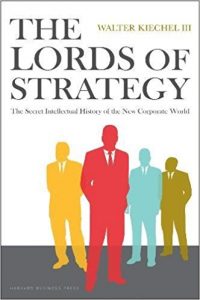
There’s a book called The Lords of Strategy and it talks about the history of consulting. A lot of folks applying to the industry don’t know much about its roots and it’s pretty helpful. Check it out. It’s a good read and it’s about basically your MBBs of the world, relevant for folks who we’re interviewing.
I hope you enjoyed the conversation. Don’t forget to check out Destin on his website, ConsultingInterviewCoach.com. A couple of things I want to talk to is the MECE mentoring moment . Given what Destin shared, we are so thankful for his insights. If you’re considering a consulting case interview prep service, there are a number of them out there. Destin’s is one of many. I know several people that’s used Destin’s and it’s been really effective for them. What are some things you should consider if you are in the throes of case interviews and you want to test out from an objective voice. The case interview prep services are really valuable because these are trained professionals. These are professionals with a trained eye to look for what can be some blind spots or areas of focus that you may need to fine tune and they can give you a different lens on it. I highly recommend checking out Destin and his service and any of the other similar services.
What to consider when you’re looking at that? I want to mention three top things that you should look for in a surface like that. The number one is proven results. You want to make sure that the service that you are reaching out to and you’re going to put money and invest into their services, that they’ve actually had successful candidates that have gotten offers at the targeted firms that you are speaking to. That’s first and foremost, proven results. There’s nothing that compares to that. There are a lot of them out on the market, but you want to make sure that that’s the number one, that they have proven results. How do you find that out? Talk to other individuals around you that you know that are going through interview case preps as well. Find out, did they use the services? If you reach out to the companies, ask them for referrals. You can also go to do a quick recon. If you Google, sometimes there’ll be testimonials and different things. Just do a little bit of research. Make sure they’ve proven results.
Secondly, you want to be compatible with the type of coaching style that they offer. Everyone has different styles. When I say compatibility, I don’t mean like they’re going to be nice to you. You want a style that they’re going to see the weaknesses that you may have in your interview prep, and they can laser focus in on that and help you take your performance to the next level. Compatibility in terms of they have the right working style to work with you, to take your approach to the next level. That’s critical.
My third is for those that say, “It sounds like a great service. I don’t have that type of funding.” I remember when I was in college, I was the broke college student always working a thousand jobs. I hear you as well, and for those, I’d say be creative. If you do decide to use a service like that and decide to use it sparingly, leverage them at the beginning of your case interview journey. Figure out your baseline. If you buy one coaching session, what’s your baseline? Take the feedback they provide. Create your own personal, your own type of practice schedule, whatever the feedback is that you need to work on.
Come up with your own schedule. Work offline. I recommend doing peer-to-peer. Find peers at your college or maybe some folks that are more senior than you that’s already gone through this process that may have gotten an offer. Find other people on your campus or in your circle that you can do peer-to-peer case interview practice with. Then round it out towards the end when you’re very close to your scheduled interview dates. Buy another session just to see where you are. Use it sparingly.
If you don’t have the funds at all to use this service, I would say definitely the peer-to-peer case interview practice is the way to go. I know everyone has different styles. Some people may prefer to do case interview prep on their own. For me, what helped me prepare was having folks to do case interviews with. I personally sought out people that had the opposite of whatever challenges that I was facing.
I know quantitative was one of my biggest weaknesses when I was going through the case interview prep. I would seek out some of my friends that I know that’s really sharp, had really extremely strong quantitative skills. I asked you to test me and give me hard cases to round out to make sure that I’m fine tuning myself. The opposite, I’ve actually had some of my friends that are very quantitatively driven and they need a lot of help on the qualitative side. They would turn to me and I provide them that coaching. Find people that can help round out where you are.
Along our Welcome Back to Campus Journey, I had a chance to connect with Brianna. Actually, she’s just gone into her senior year at Seton Hall University. She just wrapped up her summer internship and she walked into the door of campus this year with a fulltime consulting offer in tow. She shares a little bit about her journey and we also give advice to another intern that had a very different outcome this summer. We want to talk about that.
I want to thank Destin Whitehurst of ConsultingInterviewCoach.com for being our guest on the show. This is Christie Lindor, signing out for MECE Muse Unplugged pop-up podcast. Here’s to your journey to greatness.
Links from today’s episode:
About Destin Whitehurst
 Destin Whitehurst is the author of “The Case Interview: 20 Days to Ace the Case” and several popular blogs on ConsultingInterviewCoach.com.
Destin Whitehurst is the author of “The Case Interview: 20 Days to Ace the Case” and several popular blogs on ConsultingInterviewCoach.com.
Destin is a management consultant, entrepreneur, and MBA candidate at the University of Texas McCombs School of Business. As Co-Founder and President of Consulting Interview Coach LLC, he manages client relations and interview coaching. During his time in strategy consulting, Destin advised ten clients on mergers and acquisitions ranging from $350 million to $4 billion across Europe, Latin America, and the United States. Apart from client service, he also led undergraduate recruiting at multiple universities, overseeing the selection process for over 300 management consulting candidates. He is currently based in Austin, TX.
When not working, Destin likes to travel to far-flung corners of the globe, jog down Town Lake trail, and eat great meals with family and friends.
